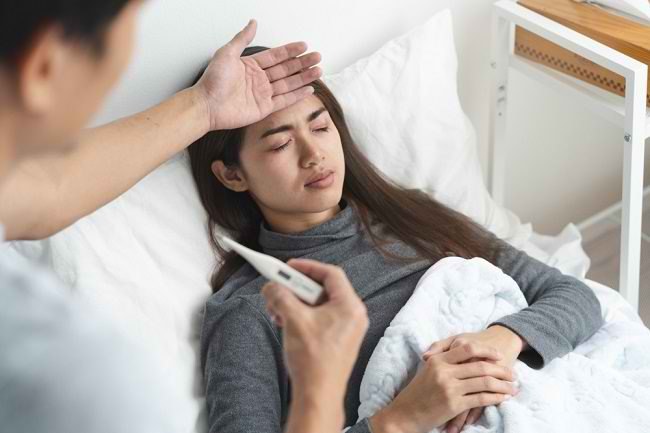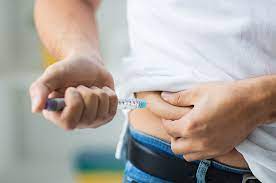Dengue fever treatment requires careful attention from the patient and his/her family. According to the World Health Organization (WHO), severe dengue fever is one of the leading serious health problems and causes of death in several Asian and Latin American countries. For that reason, it requires treatment by professional medical personnel.
What Is Dengue Hemorrhagic Fever?
Dengue hemorrhagic fever is a disease caused by dengue virus infection. This disease is characterized by leakage of blood plasma in the body that may endanger the patients’ life. If there is no plasma leakage, the disease is called dengue fever with generally milder symptoms.
There are four different types of dengue virus. However, the choice of dengue hemorrhagic fever treatment hinges on the severity of the symptoms, not the type of virus. This virus is transmitted to humans through bites by previously infected Aedes mosquitoes, especially Aedes aegypti, Aedes scutellaris, and Aedes albopictus.
Mosquitoes that spread dengue virus generally breed in urban areas and are more active during the morning (06.00-09.00) and afternoon to evening (15.00-17.00). The dengue virus spreads more rapidly in densely populated settlements that pay less attention to environmental hygiene, especially during the rainy season. This is because mosquitoes carrying the virus can breed more easily in stagnant water in a less clean environment.
There have been many extraordinary events of dengue haemorrhagic fever in various parts of Indonesia. When an outbreak of dengue fever is declared in an area, it means that the transmission and death rate in that area increases rapidly. Most dengue patients are children who generally have lower levels of antibodies.
People who are infected with dengue hemorrhagic fever need medical treatment to control their symptoms until they recover. Proper handling of dengue hemorrhagic fever by medical personnel has been shown to prevent patients from becoming more seriously ill and even losing their lives.
When Do We Know that We Have Dengue Fever?
The period from the bite of an Aedes mosquito to the onset of symptoms in a person varies. According to the WHO, the incubation period of dengue virus in humans is 4 to 10 days after the bite. Symptoms appear in about 2-7 days. To find out if we are infected, first look for signs and symptoms of dengue fever.
The main symptom that can be seen in dengue fever is a rash or red spots on the body. Other symptoms include:
- Sudden high fever above 38 degrees Celsius
- Severe headache
- Pain behind the eye
- Body aches and pains
- Decreased appetite
- Nausea and vomiting
- Lower abdominal pain
A person is more likely to get dengue fever if there are people nearby who just had the disease. For example, family members at home, neighbours or friends at school. A person who has strong antibodies may avoid dengue fever even if he/she is bitten by a mosquito carrying the dengue virus.
To make sure whether we are infected with dengue fever, it is necessary to get an examination from a doctor. Diagnosis is made by performing blood tests to count the number of white blood cells (leukocytes), platelets and the percentage of red blood cells (erythrocytes) in the blood (hematocrit). Doctor examination is also important to make sure that you get proper treatment.
Can We Stay at Home If We Have Dengue Fever?
Essentially, the focus of hemorrhagic dengue fever treatment is to control the symptoms. Therefore, patients with dengue fever can be treated at home. However, for safety reasons, only a doctor can decide if a person can stay at home when he/she has dengue fever.
The doctor will first examine the patients’ condition to check the severity of the symptoms. In general, according to WHO recommendations, patients with hemorrhagic dengue fever should be hospitalized to increase their chances of recovery. This is because the treatment of dengue fever requires medical expertise of trained doctors and nurses.
Equipment and medications to support the patients’ recovery are also more available in hospitals than at home. Dengue patients will experience three phases: fever, critical condition, and recovery. During the critical phase, the patients are susceptible to a sudden deterioration in condition. Once hospitalized, the patients can receive proper treatment immediately at this stage. For example, getting an IV to replace lost fluids and electrolytes or having blood transfusion if the patients are bleeding heavily.
What Should be Done to be Fit Again after Dengue Fever?
People who have been healed from hemorrhagic dengue fever often still feel lethargic, which affects their fitness. This condition is called post-viral fatigue syndrome, which is characterized by a feeling of tiredness or lack of energy in the body. To regain your fitness, you must first need to get enough rest. Sleeping for 7-8 hours per day can help regenerate body tissues affected by dengue fever.
Also, make sure you follow a balanced diet. You should get plenty of vitamins, proteins and minerals that are important for a faster recovery. Your body also needs to stay hydrated, so you should drink enough water every day. You may also drink coconut water as it is rich in electrolytes that can increase energy. Light exercises such as walking or cycling will also help restore your fitness.
Do We Need a Health Check-Up after Dengue Fever?
Patients who have gone through the recovery phase will usually have another blood test to make sure that their blood cell counts return to normal. However, patients will still be advised to pay attention to their medical condition after dengue fever treatment in hospital. This is because some of the symptoms may continue for weeks after recovery. In addition, severe dengue fever may affect organ function.
The most commonly complained symptoms are getting tired more easily and body fatigue. People who have recovered from dengue fever are also prone to nutritional disorder and anxiety. Therefore, if symptoms persist, a post-hemorrhagic dengue fever test may be required. The treatment of dengue fever itself is not limited to the patients’ return to their home after they have been declared healed. Patients may return to the hospital for a doctor tele-consultation when they feel that the symptoms are interfering with their daily activities. For doctor visit, doctor tele-consultations and home nursing services, please contact Kavacare Support.



